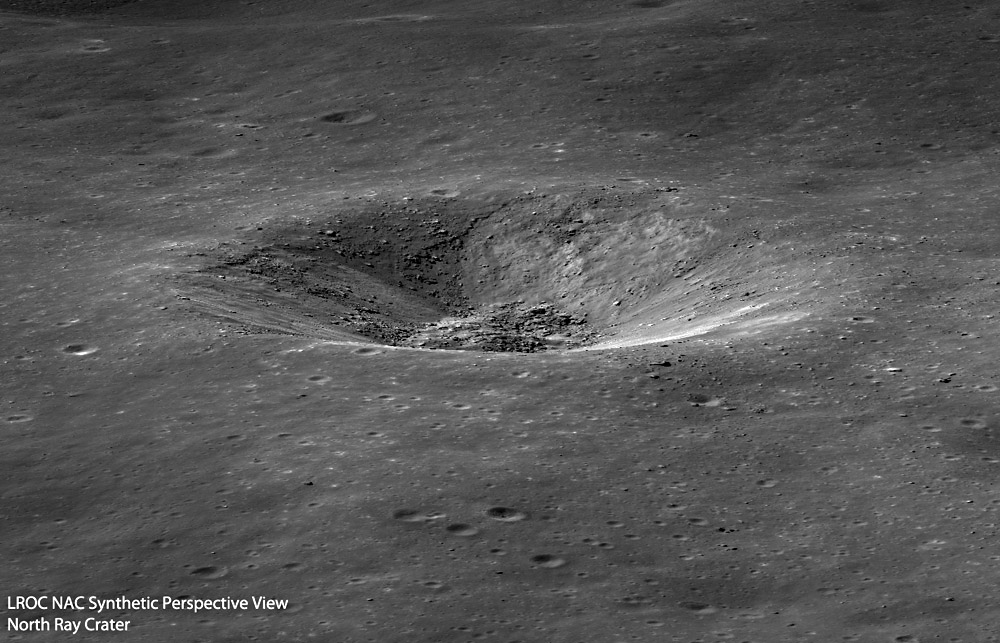November 24, 2012
How Old is This Crater?

LRO image from NASA/GSFC/Arizona State University
The Moon's surface is dominated by craters, from sub-microscopic to basin-size. We can measure their diameters and depths, describe their processes of formation and modification, and give them names, but can tell the age of only a few. The reason is that determining the absolute date of formation of a crater requires radiometric dating of a certified sample of its impact melt or of a rock strongly shocked by the crater's formation or by determining a piece of ejecta's exposure age - how long it has been sitting on the surface. Apollo astronauts brought 382 kg of lunar samples to Earth representing thousands of events, but scientists don't really know exactly what events most of the samples date. We think that Tycho and Copernicus are about 109 my. and 800 m.y. old but no one can prove that the samples used to arrive at those ages are actually from those craters. Apollo 16 astronauts did collect rocks from the rim of the 890 m wide North Ray Crater and its age is confidently known to be 50 million years. The slightly larger South Ray crater is much younger, only 2 m.y. old. A second way to date craters is to count the number of subsequent craters that formed on them. This gives a model age that obviously depends on knowing the rate of formation of craters. Surprisingly, not many model ages have been published for individual craters, but they have for many lava flows of the maria. In a 2010 paper Werner and Medvedev determined model ages of ray craters. They determined that rayed craters as a population are younger than about 750 m.y. with smaller ones being considerably younger. Rayed craters with diameters of 0.5 to 1 km are on average about 5 m.y. old; South Ray Crater fits that result beautifully, but North Ray, at 50 m.y., doesn't. Why?
Chuck Wood
Related Links
Rükl plate 45
21st Century Atlas chart LS1
Yesterday's LPOD: Every Direction is North
Tomorrow's LPOD: Areas of Confusion
COMMENTS?
Register, Log in, and join in the comments.



